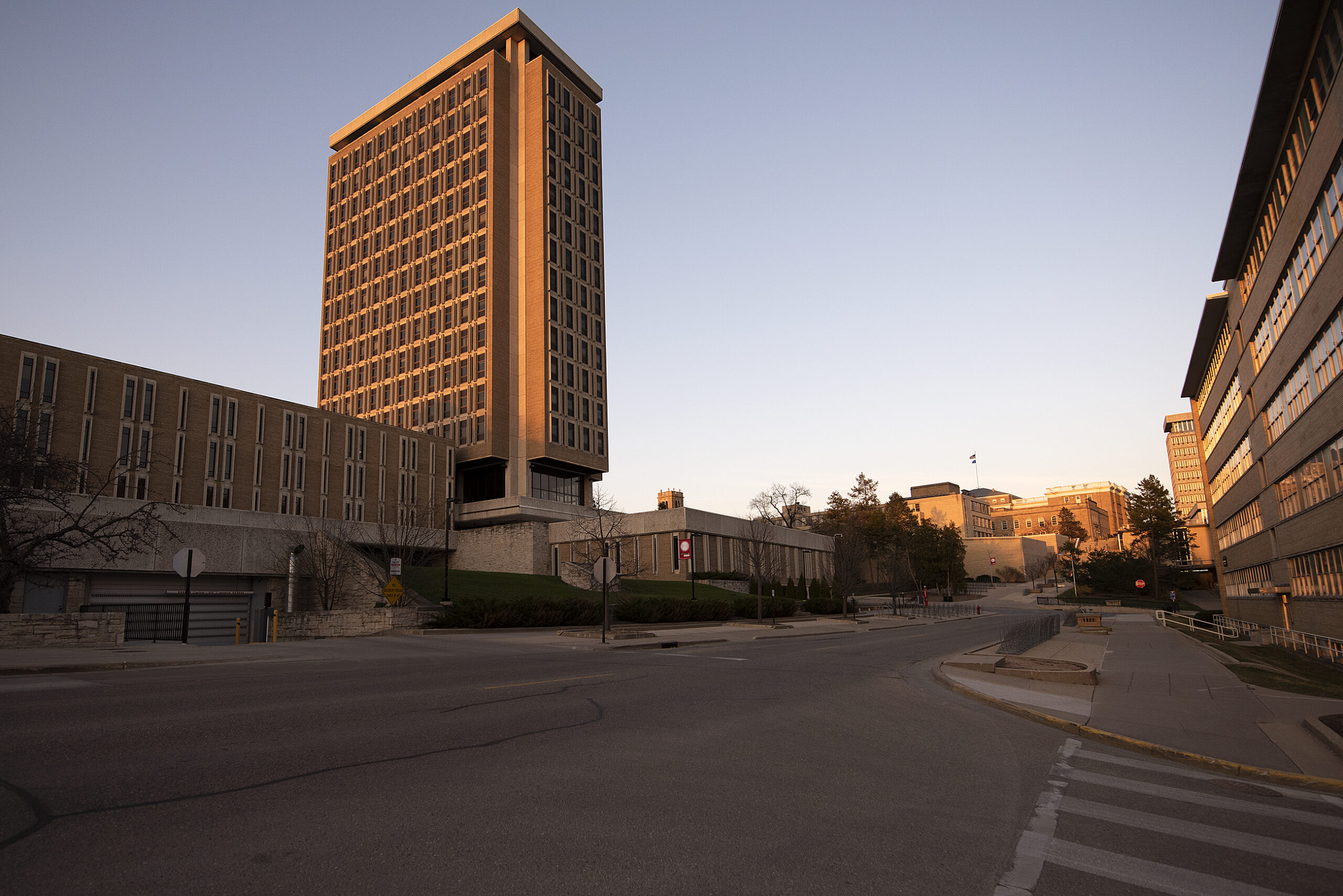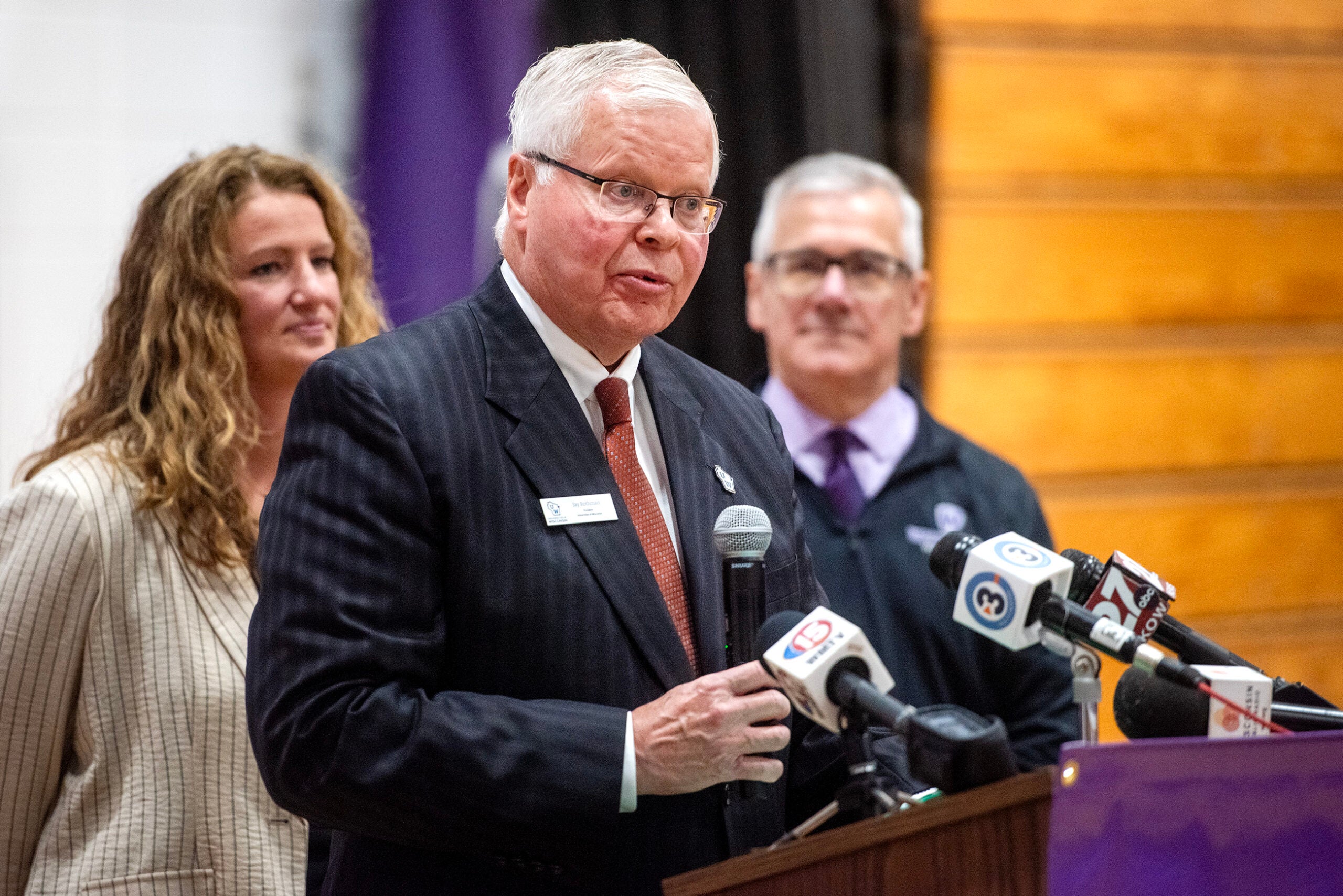The University of Wisconsin System Board of Regents Thursday approved a budget that keeps an in-state undergraduate tuition freeze in place for another year.
Tuition at the UW System’s four-year universities has been frozen since 2013. Jay Rothman, who took office as the new University of Wisconsin System president last week, recommended extending the freeze. He said Thursday $25 million in federal pandemic relief funding that Gov. Tony Evers allocated to the system earlier in the year helped to keep the freeze in place.
“We are certainly grateful for that support,” Rothman said. “We continue to do our best to keep costs down, but we know we are facing inflationary headwinds.”
News with a little more humanity
WPR’s “Wisconsin Today” newsletter keeps you connected to the state you love without feeling overwhelmed. No paywall. No agenda. No corporate filter.
Though tuition remains frozen for resident undergraduate students, other costs will increase. The budget estimates that between fees and room and board, resident undergraduate students will see an average increase of $273 for the 2022-23 academic year.
Though the Board of Regents supported the new budget, some members expressed concern over the system’s long-term finances.
Regent John Miller said the tuition freeze isn’t sustainable.
“The gap between what is available to the universities to fund operations and what is needed is still there and only growing larger,” Miller said. “This neverending tuition freeze environment weakens the ability of our universities to serve our students.”
Miller said the present path “borders on negligence.”
“The students don’t want to attend schools that have buildings in dire need of repair, where we lose great professors who flee the state to earn market wages, or where cutting-edge research is being performed in labs that look like someone’s garage,” Miller said. “I’ve run a business, and I can tell you that if I didn’t raise the price of my product for 10 years, while watching my expenses increase, my employee salaries increase, the ones that stay, and my capital assets get older and need more expensive repairs, I’d be out of business.”
According to the budget, the system’s expenditure budget for the year ahead will increase by about $296 million compared to last year’s budget. UW revenues, meanwhile, are set to increase by about $275.2 million.
Committee approves Illinois resident tuition discount
The board’s Business and Finance Committee approved a measure that would allow Illinois residents to pay tuition rates equivalent to rates in the Midwest Student Exchange Program, or MSEP, for the 2023-24 academic year and beyond.
The MSEP offers discounted out-of-state tuition rates at participating institutions to students in Indiana, Kansas, Minnesota, Missouri, Nebraska, North Dakota, Ohio and Wisconsin. Illinois ended its participation in the program in July of last year. Soon after, the UW Board of Regents voted to continue offering Illinois students at UW-Milwaukee rates equivalent to those in the MSEP for the 2022-23 academic year. The measure approved by the Business and Finance Committee Thursday would expand that parity to all UW System institutions that choose to opt in.
Regent Kyle Weatherly said when he spoke to a group of UW-Whitewater students from Illinois, many of them said it was cheaper to attend UW-Whitewater as an out-of-state student than schools in Illinois.
“While the tuition freeze, obviously, we have concerns about that, it has led to some competitive advantages when we look at students to the south,” Weatherly said. “It was eye-opening to me seeing students saying, ‘Why did you come to Whitewater?,’ and them sharing literally, it was a cost analysis.”
New system president addresses board
Rothman told the board Thursday his priorities in his new role include “opportunities for thoughtful, serious and civil debate on pressing issues,” as well as efforts in diversity, equity and inclusion.
“It is clear to me that each campus has its own unique needs, but it is also clear that there are significant areas of shared concern and shared approach,” Rothman said. “What is undoubtedly clear as well is that we are much stronger and formidable when we work together.”
Rothman said he hopes to “create a new chapter” for the system, at a time when higher education is facing a slew of its own challenges.
Wisconsin Public Radio previously reported that enrollment at UW System schools continues to decline, most notably at its two-year colleges. That trend has also been seen at the state’s private colleges, where enrollment was down 9.8 percent in spring of 2021.
The UW System has also faced administration issues. The former interim chancellor of UW-Whitewater said after his resignation in April that he felt he had a lack of support from system leadership.
“There is no doubt that higher education in general is facing some tough challenges,” Rothman said. “I have no doubt that the University of Wisconsin System is well positioned to turn challenge into opportunity.”
The full Board of Regents will meet again Friday morning to approve Thursday’s committee actions and elect officers.
Wisconsin Public Radio, © Copyright 2026, Board of Regents of the University of Wisconsin System and Wisconsin Educational Communications Board.






